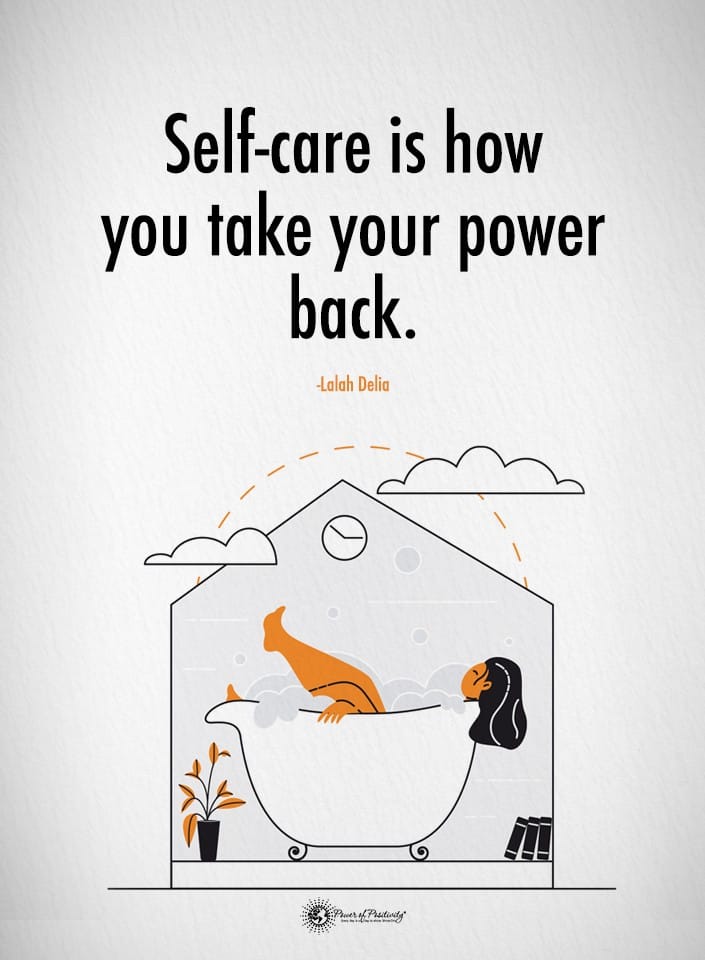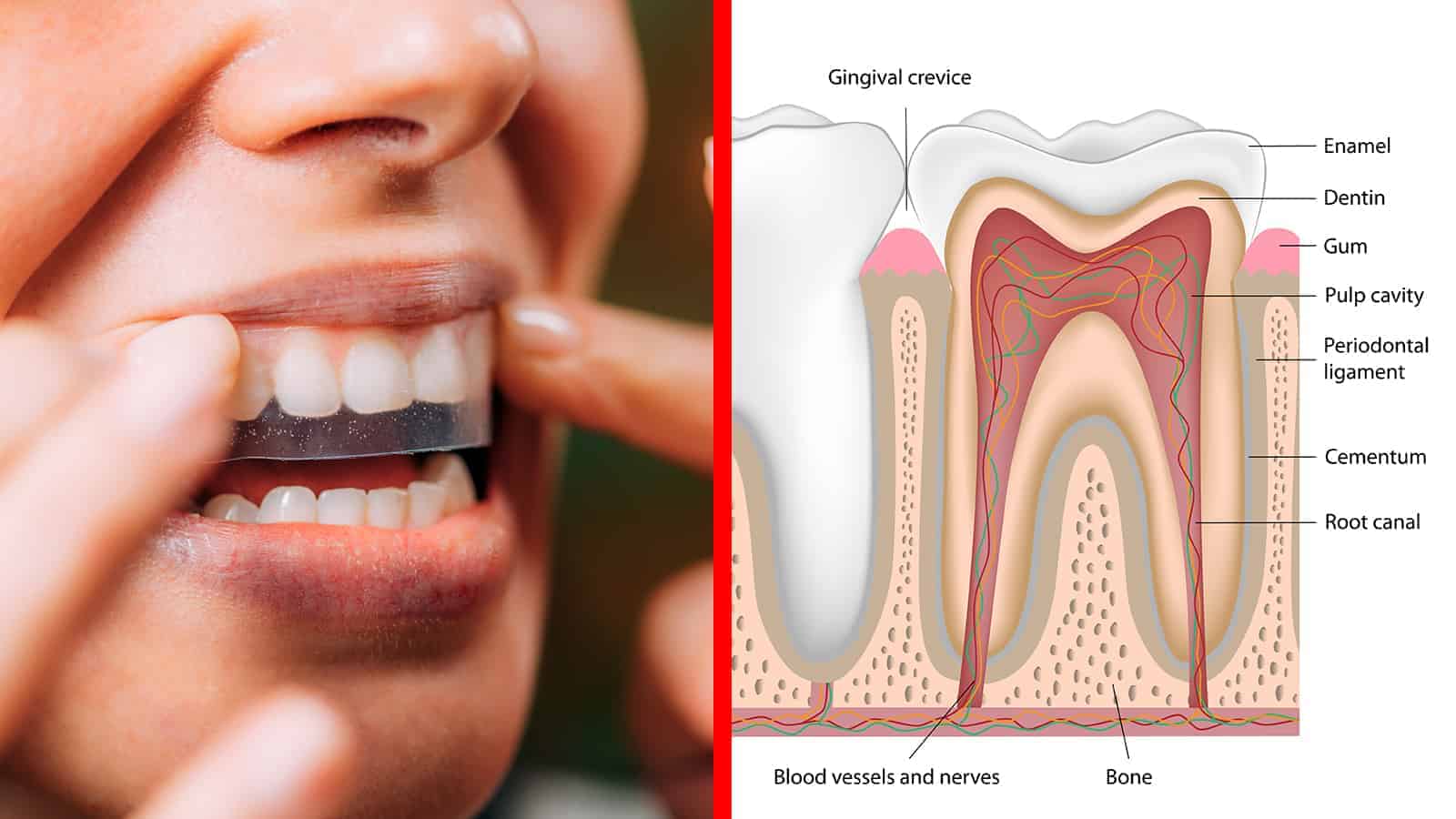In three separate studies, researchers found that teeth whitening strips can cause more harm to your teeth than good. Americans spend around a billion dollars on these products per year, and by 2024, experts believe this will grow to $7.4 billion. While these products succeed in whitening your teeth, they can also cause potentially permanent tooth and enamel damage.
Researchers presented their findings at the American Society for Biochemistry and Molecular Biology meeting last year. They found that hydrogen peroxide, the active ingredient in over-the-counter teeth whitening strips, can cause damage to protein-rich dentin tissue. This lies under the protective tissue of the enamel, which helps insulate the teeth. It is the hardest substance produced in your body, designed to withstand chewing, biting, grinding, and crunching.
The tooth consists of three layers: the outer tooth enamel, the dentin underneath, and connective tissue binding the roots and gums. Previous studies on teeth whitening strips have generally centered around the enamel, which doesn’t have much protein. However, this study analyzes the effects of whitening products on dentin, which contains high protein levels, mostly collagen. Most of the tooth is comprised of dentin. Transform your smile with our comprehensive cosmetic dentistry services at Artistic Smiles, tailored to enhance your confidence.
How teeth whitening strips and products impact dentin in teeth
 Many studies have shown that hydrogen peroxide permeates the teeth’ enamel and dentin layers. Studies done by this research group found that collagen in dentin decreased when exposed to whitening strips. However, they wanted to do more research to further understand its impacts on teeth, specifically on the dentin layer.
Many studies have shown that hydrogen peroxide permeates the teeth’ enamel and dentin layers. Studies done by this research group found that collagen in dentin decreased when exposed to whitening strips. However, they wanted to do more research to further understand its impacts on teeth, specifically on the dentin layer.
“We sought to further characterize what the hydrogen peroxide was doing to collagen,” said Keenan. “We used entire teeth for the studies and focused on the impact hydrogen peroxide has on the proteins.”
Researchers found that the new study transforms collagen into smaller pieces when exposed to hydrogen peroxide. In other experiments, they treated pure collagen with hydrogen peroxide. Then, they studied the protein using a specialized gel electrophoresis lab procedure, which helped them see protein molecules better.
“Our results showed that treatment with hydrogen peroxide concentrations similar to those found in whitening strips is enough to make the original collagen protein disappear, which is presumably due to the formation of many smaller fragments,” said Keenan.
What the research team found
The researchers stressed that while teeth whitening strips cause tooth damage, their research on whether it’s permanent is inconclusive. Perhaps collagen and other proteins can regenerate, but this would require further studies. To find out, they plan on studying other protein fragments released when treating collagen with hydrogen peroxide. From this, the team hopes to conclude the effects of hydrogen peroxide on other proteins found in teeth.
Of course, some people enjoy having whiter teeth, especially those who drink a lot of tea, wine, or coffee. These substances can leave stains on your teeth because of compounds they contain called tannins. Tannins occur abundantly in certain plants, and their purpose in nature is to keep animals from eating them before they ripen. They are a bitter, astringent type of polyphenol and have a lot of antioxidants.
However, because they can cause tooth discoloration, many people turn to whitening products to reverse the damage. If you want to whiten your teeth, try these home remedies to get results without harmful effects.
How to achieve teeth whitening naturally.
Try these tips to polish up those pearly whites.
1. Brush your teeth thirty minutes after meals and snacks.
Experts say that brushing your teeth thirty minutes after eating can help improve oral hygiene and bacteria in your mouth and keep the enamel from coming off. Especially if you eat something sugary; you’ll want to brush the residue off your teeth as it can cause plaque to build up.
2. Try coconut oil pulling.
Coconut oil offers so many health benefits, including whitening your teeth! Not only can it brighten your pearly whites, but it also contains lauric acid, which is a powerful anti-microbial. To practice oil pulling, place a tablespoon of coconut oil in your mouth and swish it for about one minute. Or, you can put it on your toothbrush and brush your teeth as normal.
3. Apple cider vinegar
Apple cider vinegar (ACV) can help eliminate unwanted stains on your teeth and boost oral health. It is a natural antibiotic, and many studies have shown how it can improve gut health. Compounds in apple cider vinegar, like acetic acid, magnesium, potassium, and probiotics, make it a powerful natural remedy. Some studies found that ACV works just as well as traditional teeth whitening products but without harmful side effects!
Because ACV contains a lot of acids, you should still brush your teeth with toothpaste as well. You can either put a few drops on your toothbrush or rub it directly on your teeth to use ACV.
4. Avoid drinking too much coffee, tea, or wine.
As we said above, these products, unfortunately, lead to yellowing of the teeth due to high amounts of tannins. Of course, you could always brush your teeth right after consuming them, but this isn’t possible if you’re at work or school. You could also drink your coffee or tea through a straw to avoid touching your teeth as much.
 Final thoughts on a study showing that teeth whitening strips damage tooth enamel
Final thoughts on a study showing that teeth whitening strips damage tooth enamel
Some spend hundreds or thousands of dollars annually trying to keep their teeth shiny and white. However, commercial teeth whitening strips and products can cause more harm than good. Studies have shown that the hydrogen peroxide in these products permeates both the enamel and dentin. It causes damage to the proteins, especially collagen, found in dentin underneath the enamel.
Try at-home remedies such as coconut oil pulling or apple cider vinegar rinses to keep your teeth white. Also, brush your teeth immediately after meals, especially if you’ve just eaten something sugary. Lastly, if you care about maintaining white teeth, you’ll want to cut back on tea and coffee (not what you wanted to hear, we know!)
















